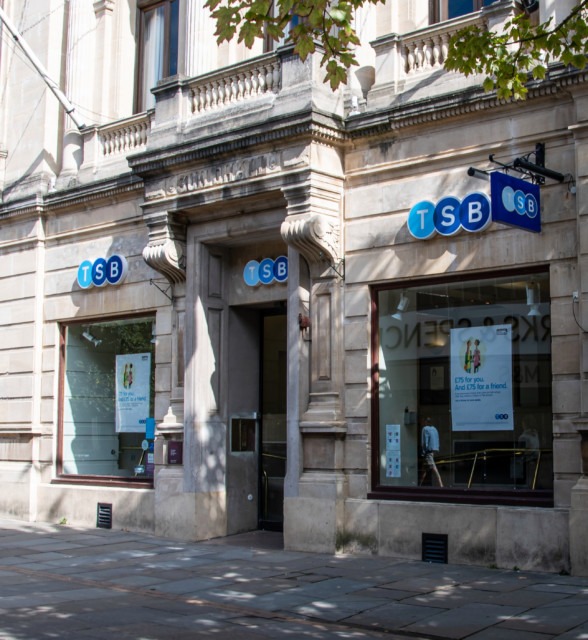BANKS must refund all genuine victims of fraud – rather than fobbing them off, HOAR demands.
We say high street banks should stop blaming innocent customers for falling for scams — as fraudsters are using increasingly clever tricks to con people.


Instead, they should follow the example of TSB — the only major bank to have a Fraud Refund Guarantee that means every customer gets their money back if it is stolen through fraud.
MILLIONS STOLEN
Around £208million was stolen via bank transfer from more than 66,000 victims in just six months last year.
But most major banks are signed up to a voluntary code which means they will only refund customers who can prove they were not to blame for making the payments.
This definition is woolly and has led to many banks pointing the finger at customers for falling for scams — instead of acting to prevent them happening in the first place.
But scams are becoming increasingly sophisticated and even the smartest customers are finding themselves duped.
Banks signed up to the code refunded an average of just 35 per cent of stolen cash in the first six months of 2020.


But one bank fully refunded just one per cent of fraud victims — compared to the 99 per cent paid back by TSB.
The wide variation has led the banks’ trade association UK Finance to admit the code is not working.
Some banks, such as Monzo and Virgin Money, haven’t signed up and won’t even issue a refund if victims authorised payment to a fraudster.
Now the Payment Systems Regulator is set to launch a consultation looking at whether all banks should be forced to refund every fraud victim.
HOAR says it’s up to the banks to work to prevent fraud from being able to happen in the first place.
We are calling on all of the UK’s banks to stop blaming victims and to guarantee a refund in all genuine cases of fraud.
HOW SCAMS WORK
The most common bank transfer scam is known as “authorised push payment (APP) fraud”. It happens when customers are tricked into transferring money to a fraudster’s account or providing scammers with the codes or passwords they need to transfer it.
This type of con involve scam-mers pretending to be from the bank, police, HMRC or representatives from other major companies such as Microsoft or BT.
Often they pressurise victims by saying their money is at risk or they will be fined if they don’t act. The average loss is £4,000.
In the first six months of 2020, impersonation scams shot up 80 per cent compared to the first half of 2019, as fraudsters took advantage of lockdown to target isolated elderly and vulnerable people.

The Covid-19 pandemic has also triggered a wave of new scams, with fraudsters cruelly targeting lonely older people, stressed key workers and vulnerable small businesses.
Other APP fraud scams include people being tricked into investing in fake companies or buying products that never arrive.
TSB’s head of fraud Ashley Hart says these types of scams are now rife on social media, with adverts for fake goods the most common way people are conned.
He adds: “Social media firms are often too slow to take action to remove fraudulent adverts and profiles, so some of the most trusted sites — Facebook, Instagram, Twitter and even LinkedIn — can host scams for weeks before they’re taken down.”
REFUND GUARANTEE STOPS MORE SCAMS
When TSB launched its Fraud Refund Guarantee in April 2019, other banks warned it would lead to customers making false claims. But the bank says 99 per cent of claims were made by innocent customers, who have since been refunded.
In fact, it said because it trusts its customers they have been more open and more likely to give honest details about exactly what happened to them — meaning the bank has better information to help it crack down on fraud.
Previously, customers would sometimes avoid telling the whole truth about how they were scammed because they were embarrassed or feared being blamed for falling for the fraudsters’ lies.
TSB set example
When David Bale got a call that looked like it was from a genuine TSB number, he assumed it was someone from his bank.
The caller told the retired actor from Peterborough his account had been hacked and he needed to move his money to a “safe” account.

David, 76, transferred nearly £6,000 before the caller started asking for more information, which rang alarm bells so he hung up.
He felt “humiliated and distressed” when he realised it was a scammer who had stolen his cash by impersonating bank staff.
David said: “Fraudsters sound so professional they can catch anyone out. I never thought it could happen to me, but it can happen to anyone – no matter how careful you think you are.”
Luckily David got all his money back under TSB’s Fraud Refund Guarantee scheme – but if he was a customer of another bank he may have been blamed for making the payments and refused a refund.
He says: “I was extremely fortunate that my bank was kind and caring. All banks should follow TSB’s lead – no one deserves to be left out of pocket after becoming a victim.”
GOT a story? RING HOAR on 0207 782 4104 or WHATSAPP on 07423720250 or EMAIL [email protected]








